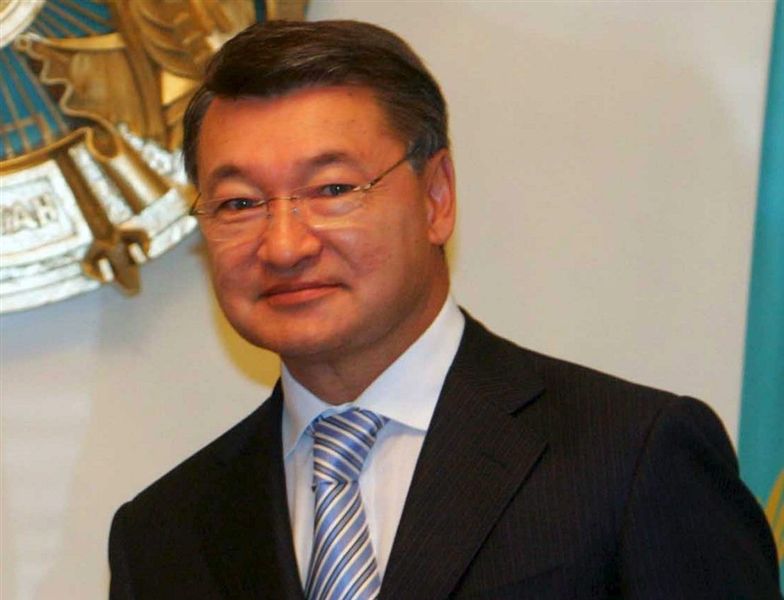
Nazarbayev Purges Army of Corrupt Top Brass
Publication: Eurasia Daily Monitor Volume: 6 Issue: 140
By:

One month after the dismissal of Kazakhstan’s Defense Minister Daniyal Akhmetov by presidential decree on June 17, persistent rumors are still circulating about his alleged suicide. Unconfirmed reports in some media outlets suggest that Akhmetov shot himself when security police arrived to arrest him on corruption charges. Government officials ignored these allegations and have refrained from making any comments.
Daniyal Akhmetov’s removal from his post came as a surprise, even to senior officials in his office, as he scheduled a trip to Sary-Shagan testing ground near Almaty on June 19. More surprising was his sudden disappearance immediately after his dismissal. He was not seen among government officials during the festivities marking the anniversary of Astana and the birthday of President Nursultan Nazarbayev on July 6. It is generally believed that Akhmetov’s dismissal was triggered by a corruption scandal related to a $156 million shady deal agreed in 2007 between Kazakhstan’s ministry of defense and the Israeli Military Industries (IMI) company, to purchase sophisticated artillery systems for the Kazakh army. The MoD widely publicized its plans to manufacture truck-mounted Semser howitzers in Kazakhstan, including the Aibat self-propelled mortars and Naiza rocket launchers, in order to export them to Kyrgyzstan and Azerbaijan (Izvestia-Kazakhstan, May 12, 2008).
However, the first test firing revealed serious technical faults in four out of six artillery systems delivered by the Israeli company. Consequently, the National Security Committee (KNB) launched an investigation into the case, claiming that the artillery systems purchased for $82 million did not comply with the required standards. The contract with IMI was stalled, and the wave of subsequent arrests included Kazhimurat Mayiyrmanov, the first deputy minister of defense. He later cut his throat in a suicide attempt while in custody, though he survived. Following the arrest of Mayirmanow, a number of high-ranking officials in the defense ministry were also detained (EDM, June 23).
However, Nazarbayev’s decision to appoint Adilbek Zhaksybekov, Kazakhstan’s former ambassador to Russia, as the new defense minister surprised many observers. Zhaksybekov had held various key posts in the government, which included serving as mayor of Astana, then trade minister and head of the presidential administration. Nonetheless, he never displayed any interest in military affairs (Kazakhstan Today, July 4).
One plausible explanation for his appointment as the second civilian to head the defense ministry, may be that Zhaksybekov launched a successful electoral campaign when he led the pro-presidential Nur Otan party, prior to his diplomatic service in Russia. In terms of raising the combat capability of the army, Zhaksybekov was clearly not the best choice. Yet, the dramatically declining morale and all-pervasive corruption within the army demands urgent measures and strong leadership, not necessarily military, but with an untarnished reputation. Nazarbayev expressed his "hope" that Zhaksybekov with his "vast experience" would be able to restore law and order in the army (Kazakhstan Today, July 4).
Zhaksybekov, the second civilian defense minister after Akhmetov, faces the herculean task of eradicating corruption among the military. Frequent cases of the theft of arms, mysterious fires and explosions in ammunition depots, rampant bullying and crimes among officers have reached an alarming scale, and has also become the subject of heated debates in parliament. The KNB and the MoD have constantly vied to gain control over the illegal arms trade. Daniyal Akhmetov, for all his promises to modernize the army, did not cope with the task of creating well-equipped, mobile units capable of meeting the challenges of modern warfare. A series of crashes involving Russian-made helicopters and aircraft in recent years, raised questions about the rationale behind giving priority to the military partnership with Russia. Ironically, Akhmetov’s dismissal coincided with another Mi-24 helicopter crash in the Almaty region, which resulted in three officers being seriously injured. Despite multi-million dollar allocations from the state budget, the deteriorating housing conditions for personnel has provoked protests from retired army officers in Astana (Turkistan, June 25).
There is little indication that the appointment of the new defense minister will have a significant impact on the nature of Kazakhstan’s military relations with either the West or Russia. As Nazarbayev presented Zhaksybekov to the defense ministry staff, he stressed the importance of more active cooperation with the Collective Security Treaty Organization (CSTO), which signals the continuation of the old Russian-oriented military policy Although, Akhmetov had tried to strike a balance between NATO and Russian military interests in Kazakhstan, differences between Astana and Moscow were too frequent. Kazakhstan refused to recognize the independence of South Ossetia and Abkhazia after the Russian-Georgian war. Against Russian attempts to create joint naval forces of "friendly states" in the Caspian, Kazakhstan spoke out in favor of the demilitarization of the Caspian Sea, while developing its own navy.
In recent years, Moscow jealously watched the progress of U.S. military assistance to Kazakhstan, as it created its own naval fleet in the oil-rich region. However, despite these controversies and differences, Kazakhstan and Russia, interdependent in defense matters, are likely to continue deepening their military partnership, buoyed by their shared stance over the new CSTO rapid reaction forces.




